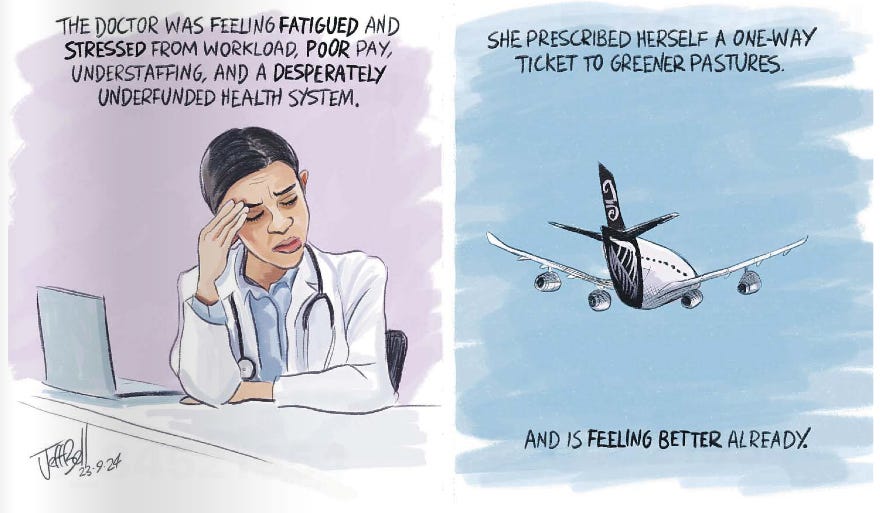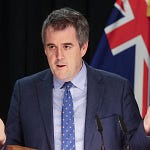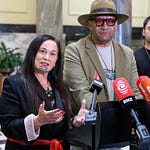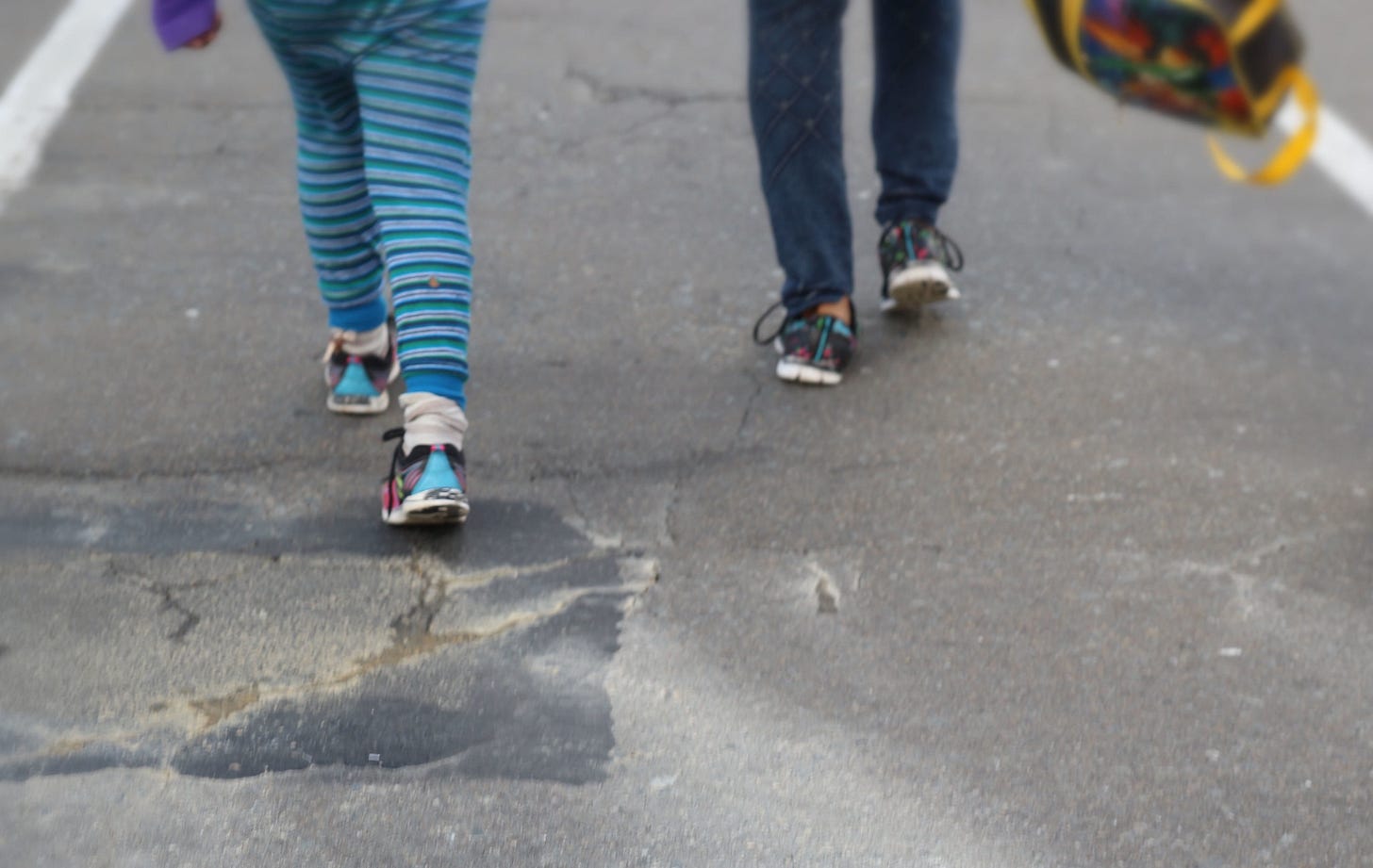
Kia ora. Long stories short, here’s my top six things to note in Aotearoa’s political economy around housing, climate and poverty on Monday, September 23:
The Government was advised in the Budget process that sticking to Labour’s child poverty reduction targets would cost $3 billion, which is less than 1% of GDP and about the same as the cost of tax reductions for landlords, but Social Development Minister Louise Upston said the extra spending wasn’t ‘realistic’. NewstalkZB
In scoop of the day, David Seymour secured a $30 million funding boost in the Budget for his new Regulation Ministry when others were forced to cut spending, Andrea Vance reports for The Post-$$$ this morning.
In deep-dive of the day, analysis by the CTU of wage inflation since 2002 finds the Government’s sinking lid policy on public spending means cuts of $3.2 billion to $5.5 billion will have to be found next year. Craig Renney via X. Sunday Star Times-$$$
In solutions news, a Philippino dairy farm manager being deported for health reasons after being on a temporary work visa for 10 years has finally been allowed to stay in the country.
In quote of the day, a young electrician explains his move to Perth.
In chart of the day, public sector pay hasn’t risen as a share of GDP in 20 years.
(There is more detail, analysis and links to documents below the paywall fold and in the podcast above for paying subscribers. If we get over 100 likes we’ll open it up for public reading, listening and sharing.)
1. Poverty solution cost of <1% GDP ‘not realistic’ to pay
DPMC advised sticking to Labour’s targets would cost $3b per year.
The Department of Prime Minister and Cabinet (DPMC) advised the new Government during the Budget 2024 process that it would cost around $3 billion a year for it to achieve the poverty reduction targets set by the previous Government.
The Labour Government set a long-term goal in 2018 of reducing the number of children experiencing “material hardship” from 13.3% down to 6% by mid 2028. However, there were 12.5% in material hardship by last year and DPMC advised it would not be possible to achieve the 9% target for this year without significant new spending.
“The necessary year-on-year progress is not on track and the estimated costs of now meeting these targets would require investment in the region of $3 billion per year,” DPMC officials advised, according to documents released under the Official Information Act and republished in the NewstalkZB article by Jason Walls below.
DPMC also presented two other “lower ambition targets” for 2028, which they said were more realistic and could be achievable without spending more money.
Upston rejected both options, which would have seen the current 6% material hardship target increase to a figure closer to 10%. Upston believes a more effective way to lift children out of poverty is by growing the economy and cutting taxes.
Upston was quoted as saying said the previous Government’s 9% goal was no longer realistically achievable.
“Our new targets are ambitious, but also reflect the reality of the economic and social climate the country is in today.” Louise Upston
Poverty: The $3b child poverty price tag: Why the minister's not writing that cheque NewsTalkZB’s Jason Walls
2. Scoop of the day
Politics: Red tape ministry got budget boost while other agencies made cuts David Seymour’s Ministry for Regulation secured $30 million as ministers wrangled over May’s Budget. But the ACT leader argues it is solving a $5b problem. The Post-$$$’s Andrea Vance
Honorable mentions
Poverty: Christchurch care and protection facility ‘chronically under-resourced’, investigation finds Stuff’s Sam Sherwood
Security: ‘We don’t feel safe here’: Call for urgent inquiry into foreign interference in NZ. Chinese New Zealanders document a long list of foreign interference activities by their homeland government and call on the PM to take action. Stuff’s Paula Penfold
Housing: Kāinga Ora block in upmarket Auckland suburb fenced off and left empty - why? The $6.8m complex in Ponsonby was only built in 2019, but its tenants have been vacated and the locals say the vacant lot is an eyesore. Stuff’s Annemarie Quill
Security: SovCits used fake ID to access PM's floor, police say RNZ
3. Deep Dive of the day
Amelia Wade wrote a deeply-reported feature in the Sunday Star Times that looked at the future cuts likely because of the Government’s sinking lid policy aimed at reducing the size of Government. See more in Chart of the day below too.
Fiscal policy deep-dive: Why the scale of government cuts to come could ‘dwarf’ those to date. Thousands have lost their jobs, and for many remaining civil servants there’s no pay rise or relief on the horizon. But things could still get much worse. Sunday Star Times-$$$’s Amelia Wade
Cost of living deep-dive: ‘It’s obscene’: Should ATM monopolies really charge $3 per transaction?Until recently, Naenae had two free ATMs. Now they’re gone, and locals are forced to pay through the nose if they want to access cash. The Sunday Star Times-$$$’s Virginia Fallon
Electricity deep-dive: Inside NZ’s stalling EV market - and how the country fares on infrastructure roll outA look at the electric vehicle market, and what needs to be done to turn around ailing EV sales and to ramp up charging stations. The Sunday Star Times-$$$’s Aimee Shaw
4. Solutions news
This case below of a dairy farm manager from the Philippines and his family who were on rolling temporary visas for 10 years and on the verge of being kicked out because of a kidney condition is a stunning example of what’s wrong with our temporary migration strategy. The news is he is allowed to stay, but only just, and only after some excellent journalism by Corazon Miller.
Migration Waikato farmer's bid to stay in NZ after 10 years accepted. Noland Kinney's residency application was earlier declined due to his chronic kidney condition. 1News Corazon Miller
Honorable mentions:
Housing: 'Huge difference': Twenty-eight 'affordable' rentals to be built NZ Herald
5. Quote of the day
A new Australian
“I didn’t feel that my job was secure enough to finish my apprenticeship, or that there would be many opportunities once I became a fully qualified electrician, which is why I’ve made the jump to Perth.
“I believe New Zealand is moving backwards. The cost of living has skyrocketed, and I don’t know how people are surviving. I hate to say it, but I’ll probably become a first-generation Australian.” Electrician Aaron Gerrandaro in the Stuff article below.
Migration: ‘I’ve made the jump’: Kiwis pushed across the ditch as unemployment rises. Aaron Gerrandaro was made redundant, and with a feeling of no hope for his industry, he moved to Perth. He’s not alone. Stuff’s Brianna McIlwraith
Migration Sorry New Zealand, I'm heading overseas because I need a jobIt's nothing personal Aotearoa, it's the economy. Natalia Sutherland via 1News
6. Chart of the day
The public sector has not ‘exploded’ or is eat the rest of the economy
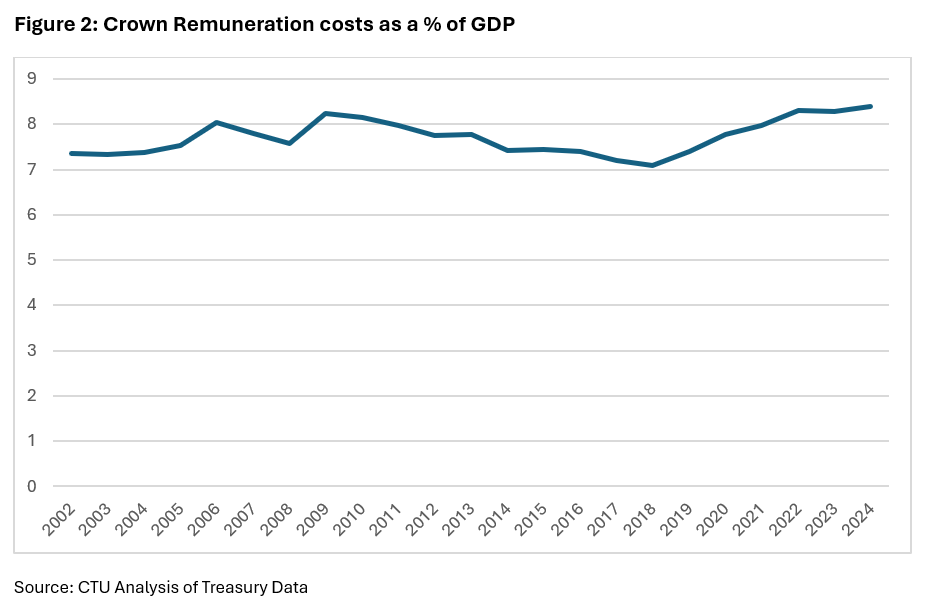
“The 2024 Workforce Policy Statement is trying to tackle a problem that only exists because the government has chosen to give around $15bn in tax cuts mainly to landlords and higher income earners.
“If pay increases in line with average change since 2002, that means finding $5.5bn a year in cuts for four years. If we take the 5 years after the GFC, that means cuts of $3.5bn.” CTU Chief Economist Craig Renney via X
The Kākā’s Journal of Record for Monday, September 23
Infrastructure & environment: RMA Reform Minister Chris Bishop announced that "property rights" will be the guiding principle of two new laws being developed to replace the Resource Management Act. Labour environment spokesperson Rachel Brooking said there needed to be a bipartisan approach to replacing the RMA and she had written to Chris Bishop to offer to work with him. BusinessDesk-$$$
Transport: Energy Minister Simeon Brown and Climate Change Minister Simon Watts announced the launch of a $27.75 million one-time fund to offset the costs of low and zero-emissions heavy vehicles. Energy Efficiency & Conservation Authority modelling estimated up to 500 diesel vehicles would be replaced with zero or low-emissions vehicles by 2028 via the fund.
Poverty: The Te Puna Aonui Expert Advisory Group for Children and Young People presented a report on improving family and sexual violence outcomes. The report suggested more people should know about Te Puna Aonui, which was formed to improve the whole-of-government approach to family violence and sexual violence. It released its national strategy in December 2021.
Welfare: The Ministry of Social Development's latest weekly benefits update showed the number of main benefit recipients is up roughly 30,000 from September 2023. Deputy Labour Leader Carmel Sepuloni said this surpassed the peak forecast for January next year.
Housing: Associate Minister of Housing Tama Potaka said the total number of households in emergency housing motels fell from 3,141 in December 2023 to 1365 at the end of August, and that 645 households have been moved so far from emergency into social housing via the Government's Priority One policy. He said those leaving emergency housing "don't have to tell us where they are moving to" and "may no longer need to access Government support."
Health: Chief Children’s Commissioner Dr Claire Achmad highlighted research by charity Cure Kids showing that children in socioeconomically deprived areas have double the rate of hospitalisations for respiratory conditions. Hospitalisation of young people for mental health reasons almost doubled in the past 20 years. Psychological distress among young people rose quintupled to 25%.
Cartoon of the day
The A320 solution
Timeline cleansing nature pic of the day
‘I’m off’
Ka kite ano
Bernard



